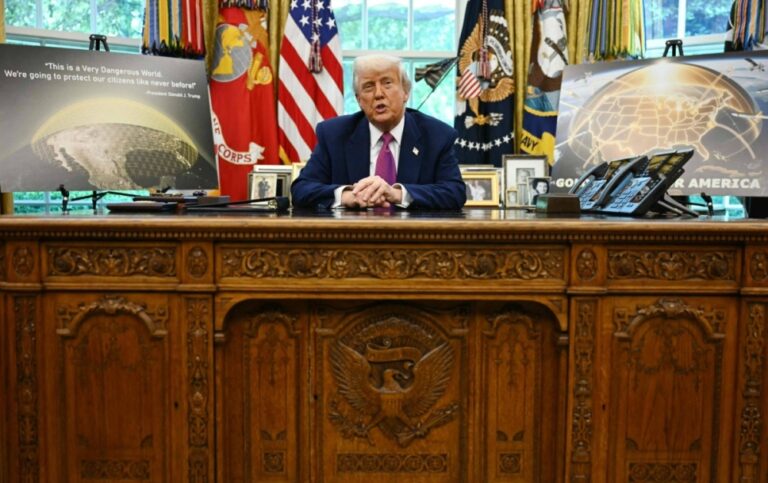By Atoyebi Nike
In a renewed effort to strengthen economic ties with Africa, United States President Donald Trump on Wednesday welcomed the Presidents of Gabon, Guinea-Bissau, Liberia, Mauritania, and Senegal to the White House, where discussions centered on unlocking business potential and forming strategic investment partnerships.
The leaders gathered at a luncheon in the State Dining Room, where President Trump highlighted Africa’s vast wealth in natural resources and its importance to U.S. foreign policy.
“You come from very vibrant places with valuable land, great minerals, oil deposits, and wonderful people,” Trump said. He also noted the continent’s internal tensions but cited recent diplomatic progress in Central Africa, referring to the peace agreement signed between the Democratic Republic of Congo and Rwanda.
Trump suggested that the countries represented were not likely to face U.S. trade tariffs, a point that further bolstered optimism among the visiting leaders.
Gabon’s President, Brice Oligui Nguema, made a direct appeal for deeper economic collaboration. “We are not poor countries—we are rich in raw materials,” he said. “What we need are partners who will help us process these materials locally, ensuring win-win outcomes.”
Senegal’s President, Bassirou Diomaye Faye, echoed that sentiment, inviting U.S. investors to explore opportunities in his country’s tourism sector. He pitched a potential golf resort just six hours from New York, playfully suggesting Trump could visit to “show off his skills.”
The meeting is seen as a strategic step ahead of a broader U.S.-Africa summit, likely to be held around the UN General Assembly in September, and part of Washington’s wider plan to reassert its influence in Africa amid China’s growing presence on the continent.
The U.S. International Development Finance Corporation (DFC) announced support for Gabon’s Banio Potash Mine in Mayumba, intended to reduce the country’s reliance on imports and boost its industrial output. “DFC’s investments promote shared prosperity and open new markets for American businesses,” said DFC’s Head of Investments, Conor Coleman.
Despite comprising a small slice of total U.S.-Africa trade, the five nations hold significant untapped resources and strategic geopolitical importance. The Trump administration also sees Senegal and Mauritania as key partners in tackling illegal migration and drug trafficking, regional issues it aims to address through diplomacy and development support.
The White House meeting, though informal, marked a visible pivot in the U.S.’s Africa engagement policy—focused on partnerships that prioritize local development, mutual economic gains, and geostrategic stability.
